Whole-Child Care for Autism and More

Contents
Pages 2-3
Page 4
Page 5
Pages 6-8
Page 9
Page 10
Page 11
Page 12
Pages 13-14
Pages 15-16
Pages 17-18
Pages 19-20
Pages 21-22
Pages 24-31
A Letter from Our Co-Founders About Cortica

The Cortica Care Model
Coordinated Care from Our Team of Specialists
Our Neurodevelopmental Evaluation Process

Diagnostic Assessments
Telehealth Services
Medical Services
Applied Behavior Analysis
Developmental Therapies
Counseling Services
Pre-Kindergarten Readiness Early Intervention Program (PREP)
Frequently Asked Questions
Image Gallery
1
ALetterfrom OurCo-Founders
Dear Physician,
If you’re looking for affordable, accessible, high-quality care for your patients with autism and other neurodevelopmental diagnoses, we invite you to explore Cortica’s services.
As physicians and co-founders of Cortica, we’ve created the country’s first network of interdisciplinary, whole-child care centers for autism, ADHD, and the full range of developmental diagnoses. Our doctors and therapists provide children with neurodiversity-affirming, personalized ABA, medical, and developmental therapies all in one place.
Our team of clinicians is led by pediatric neurologists and pediatricians who specialize in neurodevelopment and address the full range of needs of neurodivergent children, including communication, social skills, emotion regulation, sensory processing, fine and gross motor skills, seizures, nutrition, sleep, gastrointestinal issues, anxiety, and more.
Our researchers and physicians also lead innovative clinical research trials through the Cortica Innovation Network. Their work advances the field and contributes to our Cortica Care Model, which is based on the latest research in areas including genetic and environmental contributors to autism, neuroimaging and neural networks, neurophysiology, sleep, biochemistry/metabolism, gastrointestinal symptoms, and more
Cortica is committed to creating an outstanding patient experience and to being a trusted partner to our referring physicians. Our bi-directional data-sharing approach provides referring physicians with insights on patients’ continual care and progress. We also conduct patient satisfaction surveys on an ongoing basis and use the feedback to improve our services
2
We have over a thousand knowledgeable, compassionate clinicians nationwide who are committed to delivering life-changing care for neurodevelopment – one child, one family, and one community at a time. We know that quick access to care and costeffective services are essential, and we’ve developed relationships with healthcare insurers nationwide to make this possible for millions of families.
We invite you to learn more online at corticacare.com or by contacting us at enroll@corticacarecom or 8888855068
Sincerely,
NeilHattangadi,MD,MSc CEO and Co-Founder
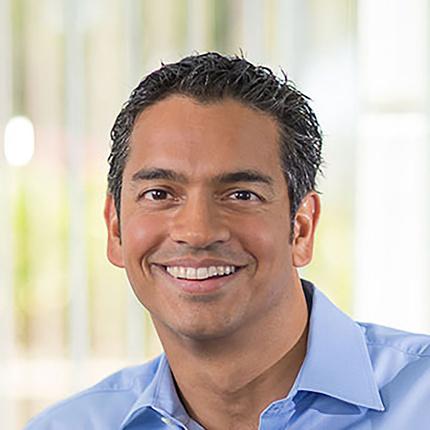 Dr.SuzanneGoh,MD,BCBA Chief Medical Officer and Co-Founder
Dr.SuzanneGoh,MD,BCBA Chief Medical Officer and Co-Founder

3
About Cortica

We are doctors, nurses, therapists, and counselors. All on one team. All with one focus on supporting nerodivergent children and their families.
We believe that children with autism and other developmental differences can thrive We focus on strengthening each child's existing capabilities and building new ones.
Our integrated care model is based on the scientific research and clinical practice of our founder, Dr. Suzanne Goh, MD, BCBA,. We offer medical, behavioral, speechlanguage, and sensorimotor therapies to achieve superior developmental outcomes for the children and families we serve
We provide every child at Cortica with an individualized program to accelerate learning and development. An essential ingredient for success is collaboration among doctors, therapists, parents, children and our extended communities. Together, we clarify the complex, celebrate extraordinary efforts, and witness moments of brilliance as our children grow new skills and abilities
Diversity, equity, and inclusion are at the heart of Cortica's mission. We foster a culture that nurtures self and group identities and cultivates respect and empathy for differences. Our commitment to these values extends from the workplace to each child, family, and community we serve
4
TheCorticaCareModel
Wecombinemedicalcarewithbehavioralanddevelopmentaltherapiestosupport neurodivergentchildrenmorecompletely,andmoresuccessfully Ourcomprehensive therapyprogramprovidescareforthewholechild,andweseeacceleratedgrowth whenallfourareasofcareworkinconcert.
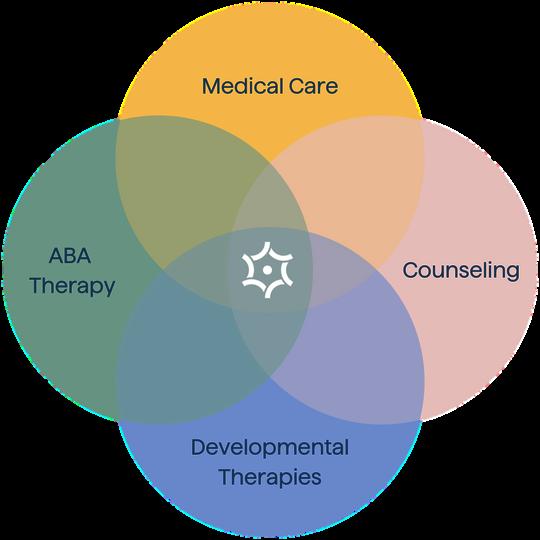
MedicalCare
We provide testing for genetic and metabolic causes of autism, and we specialize in treating co-occurring conditions, including seizures, sleep disorders, gastrointestinal symptoms, anxiety, ADHD, emotional dysregulation, and more
AppliedBehaviorAnalysis(ABA)
Our therapists take a naturalistic approach to ABA that’s built around positive, caring relationships. Children learn new skills in everyday settings, and we tailor goals and strategies to each child’s strengths and each family’s priorities.
DevelopmentalTherapies
We combine a range of different therapeutic tools to help children develop self-regulation, language comprehension and fluency, independent self-care and feeding, coordination and mobility, attention and engagement, and social-emotional skills.
Counseling
Our counselors provide high-quality mental health care in a compassionate and understanding environment, available to the whole family. We use a variety of research-based approaches, including solution-focused, narrative, play-based, strength-based, and cognitive-behavioral therapy.
5
CoordinatedCare FromOurTeamof Specialists
Webringexpertise,dedicationandkindnesstoevery interaction,ensuringthateachchildreceivesoutstanding care.
Medical Specialists
PediatricNeurologists
Our pediatric neurologists specialize in a branch of neurology called cognitivebehavioral neurology. They provide care for all aspects of a child's brain health.
Developmental-BehavioralandGeneralPediatricians
Our pediatricians receive specialized training in neurodevelopment and collaborate closely with our pediatric neurologists to support a child’s developmental needs.
Epileptologists
Our epileptologists are neurologists who have completed additional training in epilepsy They provide consultations on complex seizure care
EEGTechnicians
Our EEG technicians are skilled in completing electroencephalograms (EEGs) in children with developmental and behavioral challenges.
NursePractitioners
Our nurse practitioners specialize in neurodevelopment and have expertise with gastrointestinal disorders, nutrition, feeding, sleep, and more.
6
MedicalAssistants
Our medical assistants are families’ first point of contact for any questions related to their child's medical care.
ABA Team
BoardCertifiedBehaviorAnalysts(BCBAs)
Our BCBAs help to design therapeutic approaches offering structure and support for children. All BCBAs have a master's degree and BCBA certification.
AssistantSupervisors
Our assistant supervisors support BCBAs in supervising the ABA therapy team and provide parent coaching All assistant supervisors have a master's degree and many are working toward their BCBA certification.
BehaviorInterventionists(BIs)
Our BIs conduct one-to-one ABA therapy sessions with children. Most BIs at Cortica have certification as a registered behavior technician (RBT) or board certified autism technician (BCAT) Working with more than one BI helps children generalize their skills across different therapists.
Developmental Therapists
Speech-LanguagePathologists(SLPs)
Our SLPs conduct evaluations and re-evaluations to design and supervise speechlanguage therapy programs that meet a child's individual needs. All of our SLPs have a master's or doctoral degree.
Speech-LanguagePathologyAssistants(SLPAs)
Our SLPAs assist with conducting speech-language therapy sessions. All of our SLPAs are supervised by an SLP.
MusicTherapists
Our music therapists conduct evaluations and re-evaluations to design and supervise music therapy programs that meet a child's individual needs. All music therapists have a bachelor's or master's degree and specialty certification.
7
OccupationalTherapists(OTs)
Our OTs conduct evaluations and re-evaluations to design and supervise occupational therapy programs that meet a child's individual needs. All OTs have a master's or doctoral degree.
OccupationalTherapyAssistants(OTAs)
Our OTAs assist with conducting occupational therapy sessions. All of our OTAs are supervised by an OT.
PhysicalTherapists(PTs)
Our PTs conduct evaluations and re-evaluations to design and supervise physical therapy programs that meet a child's individual needs. All PTs have a master's or doctoral degree.
PhysicalTherapyAssistants(PTAs)
Our PTAs assist with conducting occupational therapy sessions All of our PTAs are supervised by a PT.
Counseling Team
MarriageandFamilyTherapists
ClinicalSocialWorkers
ProfessionalClinicalCounselors
Our counseling team provides children, caregivers, and other family members (including siblings) with mental health services, including individual, couples, and family counseling
All of our counselors have expertise working with neurodivergent children and their families.
Our counselors use a variety of research-based approaches to therapy, including cognitive-behavioral therapy (CBT), solution-focused therapy, narrative therapy, playbased therapy, and strength-based therapy
8
Our Neurodevelopmental EvaluationProcess
During a child’s initial neurodevelopmental evaluation at Cortica, one of our doctors or nurse practitioners will conduct a medical and developmental history and physical exam (including a detailed neurological, developmental, and behavioral exam).
One week later, the medical practitioner will meet with the caregivers to review the child’s medical and developmental diagnoses and to make recommendations for medical tests (such as genetic or metabolic testing), medical therapies (such as medications or other treatments), and developmental-behavioral therapies (such as ABA, occupational therapy, speech-language therapy, or others).
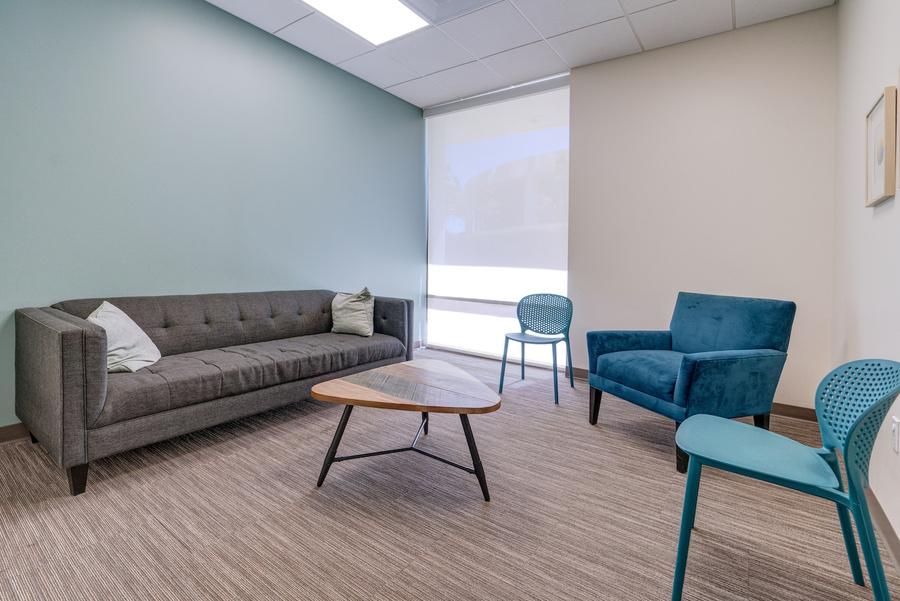
9
DiagnosticAssessments
We provide accurate diagnoses for autism, ADHD, developmental delays, and the full range of developmental differences Our findings allow us to bring the right set of therapies together for each child Here are just a few of the standardized assessments we use:
CARS
The CARS is a 15-item rating scale completed by a clinician that evaluates social interaction, communication, and other behaviors. It takes about 30 minutes to complete, and results are typically available within a week.
ADOS
This structured interview is conducted with the child's caregiver and assesses the child's developmental history, social interactions, communication skills, and other behaviors. It takes about 90 minutes to complete, with results available within a few weeks.
VABS
This standardized assessment involves a professional observing and interacting with the child. The assessment looks at social communication, social interaction, and other behaviors, usually taking about 40 minutes. Results are typically available within a few weeks.
The Vineland-3 is an assessment tool that measures adaptive behavior, which includes communication, daily living skills, socialization, and motor skills. The test is administered through a questionnaire or semi-structured interview with the child's caregiver, usually taking about 60 to 90 minutes to complete.
ChildhoodAutism RatingScale
AutismDiagnostic Interview-Revised
ADI-R
AutismDiagnostic ObservationSchedule
VinelandAdaptive BehaviorScale
10
TelehealthServices

At Cortica, a child’s treatment plan will likely include a combination of in-person and telehealth services based on a family’s schedule and clinical recommendations. Telehealth service options can ensure that a family is able to access services sooner and with fewer interruptions to care.
TelehealthatCortica
Our clinicians are trained to provide high-quality telehealth services. These services at Cortica are provided as an option for many types of visits including developmental therapy evaluations, medical appointments, counseling sessions, caregiver coaching, and more.

Telehealth:
Allows services to start sooner by increasing the availability of clinicians
Allows us to work with the child in their natural environment at home

Provides more consistent caregiver support for those who are unable to attend sessions in center
Ensures continuity of care for situations where a family cannot make it to the center
11
MedicalCareandTests
We use medical tests to understand the root causes of neurodevelopmental conditions.
GeneticTesting(FragileX,chromosomalmicroarrayanalysis,whole exomesequencing,etc.)
These genetic tests can identify causative genetic variants in close to 40% of children with autism
Metabolictesting(includingmitochondrialtesting)
These tests have the potential to identify treatable causes of autism, which are estimated to be present in about 5% of autistic children.
Electroencephalography(EEG):
About 15-20% of autistic children experience seizures. EEG is now widely recommended at the time a child is diagnosed with autism.
MedicalTherapies
Nutritionevaluation,supplementation,andmanagement:
Our team can complete a feeding and nutrition evaluation and provide guidance on dietary modifications and nutrition supplementation.
Medicationmanagement:
Some people with autism may benefit from medications to help with symptoms such as anxiety, depression, hyperactivity, and aggression Our medication management approach is designed to achieve desired therapeutic effects while minimizing side effects and potential risks.
Devicetherapies(Neuromodulation):
In recent years technologies to improve brain function and development have been approved by the FDA. We utilize these technologies as part of our comprehensive approach.
12
AppliedBehaviorAnalysis(ABA)
Cortica'sbehavioraltherapyprogramsintegratethemosteffectivetechniquesfrom appliedbehavioranalysis(ABA),enhancedwithkeyinsightsfromneuroscientific research.Thisapproachallowsustosuccessfullyreshapetheneuralnetworksthat influenceachild'sbehaviorduringandafterourABAtherapy.
WhatisABATherapy?
Applied behavior analysis (ABA) is a therapeutic approach based on the science of learning and behavior, designed to help neurodivergent children develop and improve social, emotional, and independent living skills.
Cortica's ABA program has been designed to support children in making connections between behavior and consequences, and to apply what they learn during ABA sessions to real-life situations. Through this program, each child will develop positive skills, decrease challenging behaviors, and feel more prepared for social situations at home, at school, and in the community
In-HomeABAOption
Cortica’s in-home ABA services offer clinical long-term benefits for many children. In-home ABA:
Provides a familiar, comforting environment that does not require a child to adapt to a new setting
Helps to reinforce desired behaviors using items and activities that a child already enjoys at home
Allows a child to practice everyday skills (including those related to daily routines and habits) in the same place where they need to use many of those skills
Creates opportunities for caregiver, sibling, and other family member involvement wherever appropriate, which can help to improve family relationships and empower family members to reinforce new skills
Our clinicians evaluate new patients and re-evaluate existing patients to determine when and if in-home ABA services may benefit a child’s treatment plan
13
Our skilled ABA therapists can conduct sessions in the child’s home, in our center, and in the community, when clinically appropriate. Examples of Cortica’s ABA therapy options include:
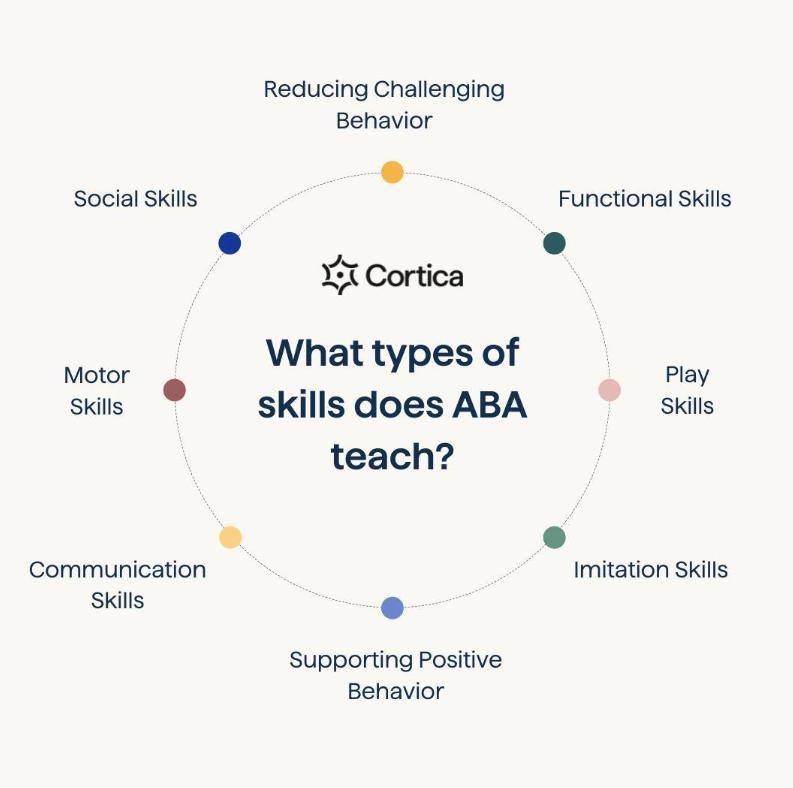
In-center or in-home ABA with parent training
Focused 1:1 programs designed to help with specific challenging behaviors
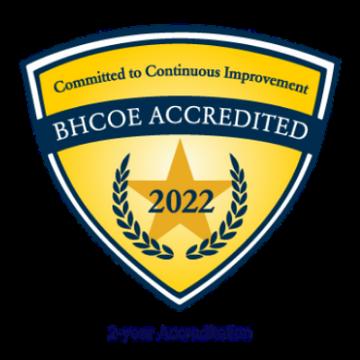
Small group programs for specific social skills, ages 6-18
In-person and telehealth social opportunities
PREP Program: A daily, four-hour, in-center group learning program promoting kindergarten readiness for children ages 2-6
14
DevelopmentalTherapies
Developmental therapies focus on improving cognitive, social, motor, communication, and functional skills in children with autism spectrum disorder (ASD).


Cortica’s developmental therapists assess how a child receives, processes, and responds to information in order to participate in the world. They collaborate with the family and other members of the treatment team to determine the most effective strategies and therapy combinations for meaningful progress toward goals.
Cortica offers the following developmental therapies at our centers and via telehealth:
OccupationalTherapy
Oursensorysystemsprovidetheframeworkforhowweengagewithothersindifferent environments.Occupationaltherapyusesplaytechniquestobuildachild’sfoundationin sensoryprocessingandintegration,self-care,finemotordevelopment,self-regulation, social-emotionaldevelopment,andplayskills
Speech-LanguageTherapy
Speech-languagetherapyusesavarietyoffunctionaldailyactivitiesandplay-based techniquestoimproveachild’sabilitytoeffectivelyexpressthemselves,understand others,producesoundsclearly,uselanguagesocially,problem-solve,chew,and swallow.
15
MusicTherapy
Musictherapy,withaneurodevelopmentalapproach,appliesthetoolsofmusicsuchas rhythm,pitch,andinstrumentplaytostrengthenlanguage,sensoryintegration,cognitive control,andmotorplanningandexecution Researchshowsthatpeoplewithautismand otherneurodevelopmentaldiagnosesrespondpositivelytomusic,oftenshowinga heightenedneurologicresponseandinterest.
PhysicalTherapy
Physicaltherapyusesactivitiesandexercisetoimprovegrossmotorskillsofthearms, legs,andtorso,tobuildstrength,balance,coordination,functionalmobility,and endurance.
Therapies delivered based on each child's needs
and goals
Developmentaltherapiescanbepersonalizedandintegratethefollowing:
One-to-onetherapy:Providedbyonetherapisttoonechild
Co-treatment:Sessionsprovidedbytwotherapistsofdifferenttherapytypestoone child
Groupsessions:Provided byoneormoretherapiststomultiplechildren
Caregivercoaching:Aninteractiveprocessbetweenclinicianandcaregiverthat involvesobservation,reflection,andaction.Thisapproachempowersthecaregiver tosupporttheirchild’sparticipationinfamilyandcommunityactivities
16
Counseling
Having a child with neurodevelopmental differences affects the whole family. Our counselors partner with families to improve emotional, relational, and internal wellbeing for each member of the family.
Our licensed professional clinical counselors, social workers, and marriage and family therapists have extensive experience with neurodivergent children and their families. They coordinate with other members of the Cortica treatment team to care for the whole child and whole family.

Support for family members and caregivers:
Helping family members develop a fuller understanding of their child's diagnosis
Providing support to caregivers with talking to the child or others about aspects of a neurodevelopmental diagnosis
Making changes in the home to support well-being (e.g., sleep, nutrition and regulation)
Helping caregivers advocate for their child in all settings
Navigating feelings of sadness, anxiety and isolation
Support for children:
Relating to others and developing deeper relationships
Adjusting to change and new settings
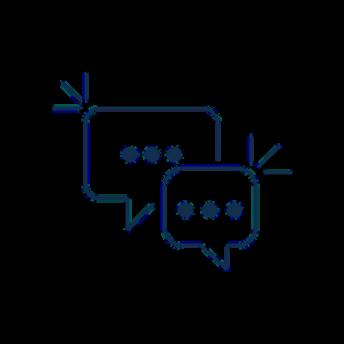
Growing up and developing skills for self-understanding and self-advocacy
Coping with stress, anxiety, sadness or loneliness
Developing a healthy self-concept
17
WhocanparticipateincounselingatCortica?
Anychilddiagnosedwithanxiety,depression,OCD,andADHD
Anychild,caregiver,orcaregiverpairhavingdifficultynavigatingthestressintheir dailylives
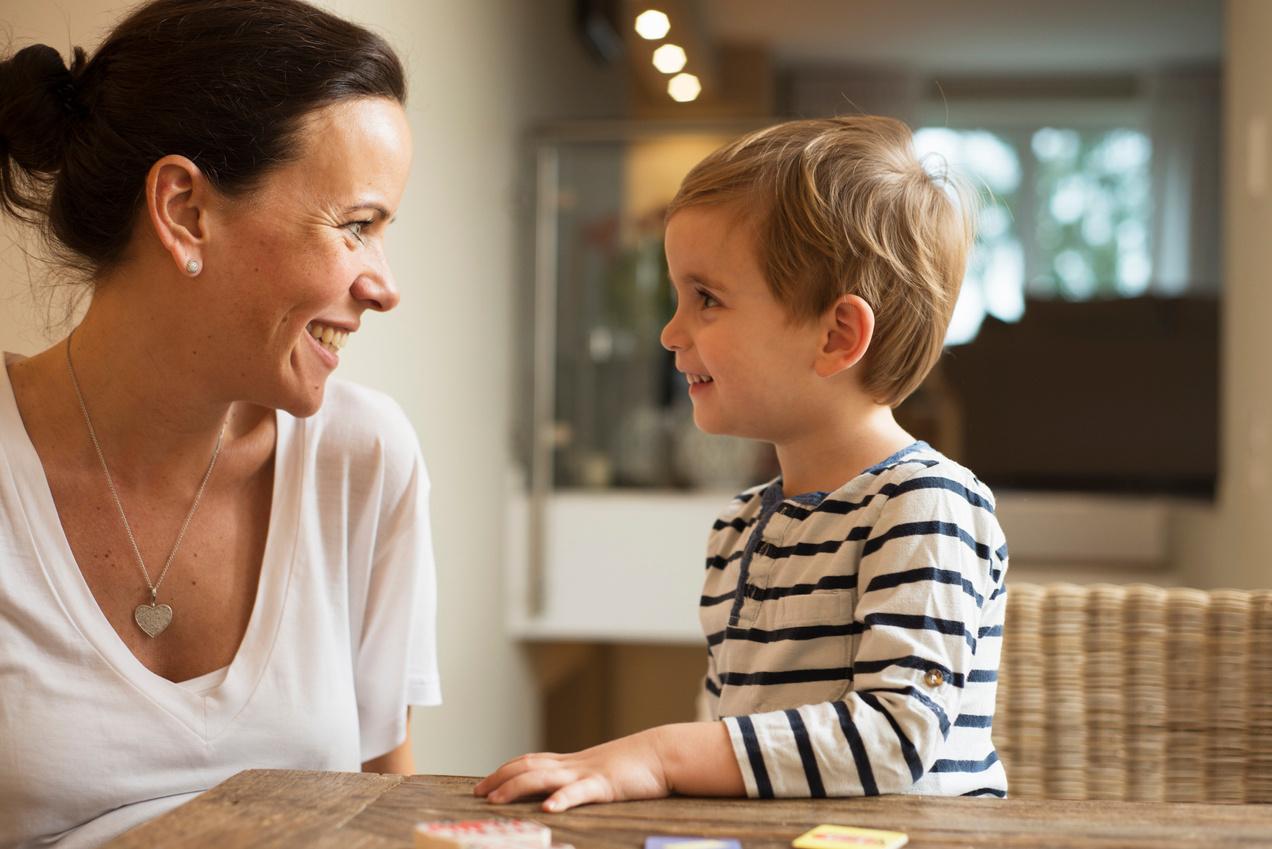
Achildwithaneurodevelopmentaldifferencewhoexperiencessomeschool troubles,whichmaycausenervousfeelings
Acaregiverwhoisfeelingoverwhelmedandunsureoftheirowncaregivingabilities
Acaregiverpairnavigatingthestressofadiagnosisintheirrelationship
Acaregiverpairexperiencingrelationshipissues
Siblingswhoneedasafespacetotalkorshareemotions
Anyfamilymemberwithamentalhealthconcerncanbeenrolledasacounseling patientatCortica Someexamplesinclude: 18
Pre-KindergartenReadiness EarlyInterventionProgram (PREP)


PREPisourintensivegrouptherapyprogramforchildrenwithautismages2to6that preparesthemformainstreamkindergarten.ThePREPcurriculumsupportschildrenas theyacquirethesocial,communication,cognitive,andmotorskillsnecessarytosucceed inmainstreamkindergartenandotherearlyeducationclassrooms
ChildrenenrolledinPREPparticipateinadult-facilitatedactivitiesandadult-led instructionsacrossfivemajordomains:
Adaptiveanddailyliving
Languageandcommunication
Socialandplay
Cognitivefunctioning
Executivefunctioning
WhoiseligibleforPREP?
ChildrenmustreceiveanABAassessmentorcurrentlybeenrolledinongoingABA servicesatCorticatobeeligible.
19
Cortica's PREP Program vs. Traditional Preschool

Beingawayfromtheirfamilies,makingnew friends,andadjustingtoanewroutinecanfeellikealot Forchildrenwithautism,this transitionmayrequiremoresupport.
Preschoolcanbeoverwhelmingforanychild
PREPatCorticamimicsatraditionalkindergartenclassroomenvironmentbyfollowinga typicalschoolschedule,featuringcommonschoolmaterialssuchaswhiteboardsand adaptiveseatingcharts,andengagingchildrenincircletimeandtabletopactivities PREP alsopreparesneurodivergentchildrentolearnalongsideneurotypicalpeersandinteract withdifferentadultteachersoraides.
20
Frequently Asked Questions
Does Cortica accept insurance?
We’re in-network with some of the largest health insurance companies, including Aetna, Blue Shield, Cigna, United Healthcare and more. In-network coverage may vary based on the family’s home state, plan type, and the services the child receives at Cortica. Please reach out to us for more information about specific health insurance plans and covered services.
Where is Cortica located?
We have locations throughout the United States, and we offer care in the clinic, in the child’s home or by telehealth, depending on their location and insurance coverage. If the family doesn’t live near a Cortica center, we may still be able to provide at-home and telehealth services. Give us a call at 888-885-5068 to learn more.
What ages does Cortica accept?
Children are our primary focus at Cortica, and our team is made up of experts in pediatric care. We enroll new patients from birth to 17 years of age.
21
What services does Cortica offer?
We offer a wide range of medical and therapy services, including ABA, diagnostic testing, speech-language therapy, occupational therapy, counseling and much more. Not all services may be available in all locations.
Does Cortica only provide care for autism?
We specialize in autism care, but we also serve a broader range of neurodiverse patients, including those with developmental delay, ADHD, epilepsy, genetic syndromes, sensory processing disorder, and more. Our team has expertise in diagnosing and treating a wide spectrum of developmental challenges
Does Cortica offer in-school services?
Depending on the child’s clinical needs and their school, we may be able to provide in-school ABA in certain districts. We are certified as a nonpublic, nonsectarian agency (NPA) in California, authorized to provide special education-related services to students.
Does a child need a diagnosis to start services?
No. Our medical team, led by pediatricians and neurologists, can perform a thorough evaluation of the child, including autism testing, and provide caregivers with an accurate diagnosis.
22
Image Gallery

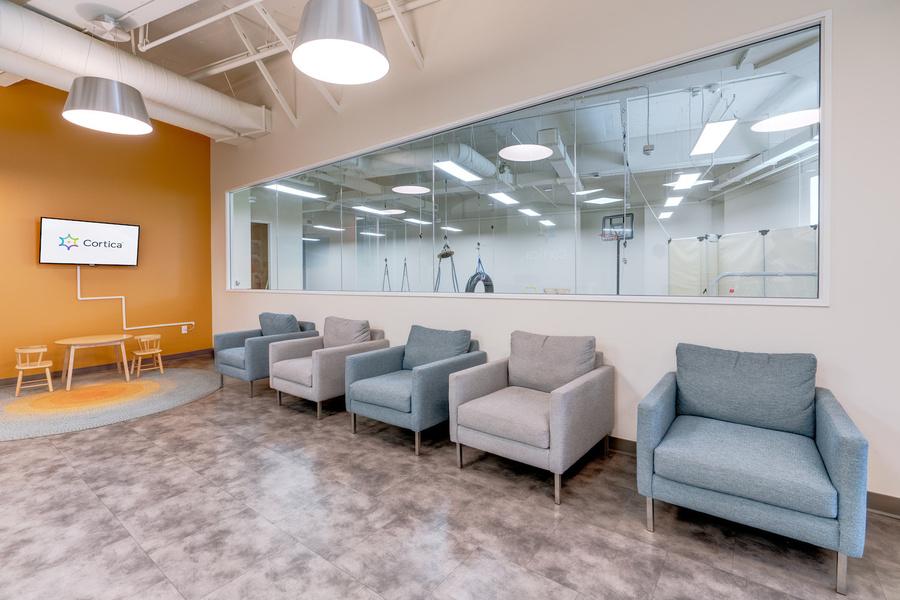
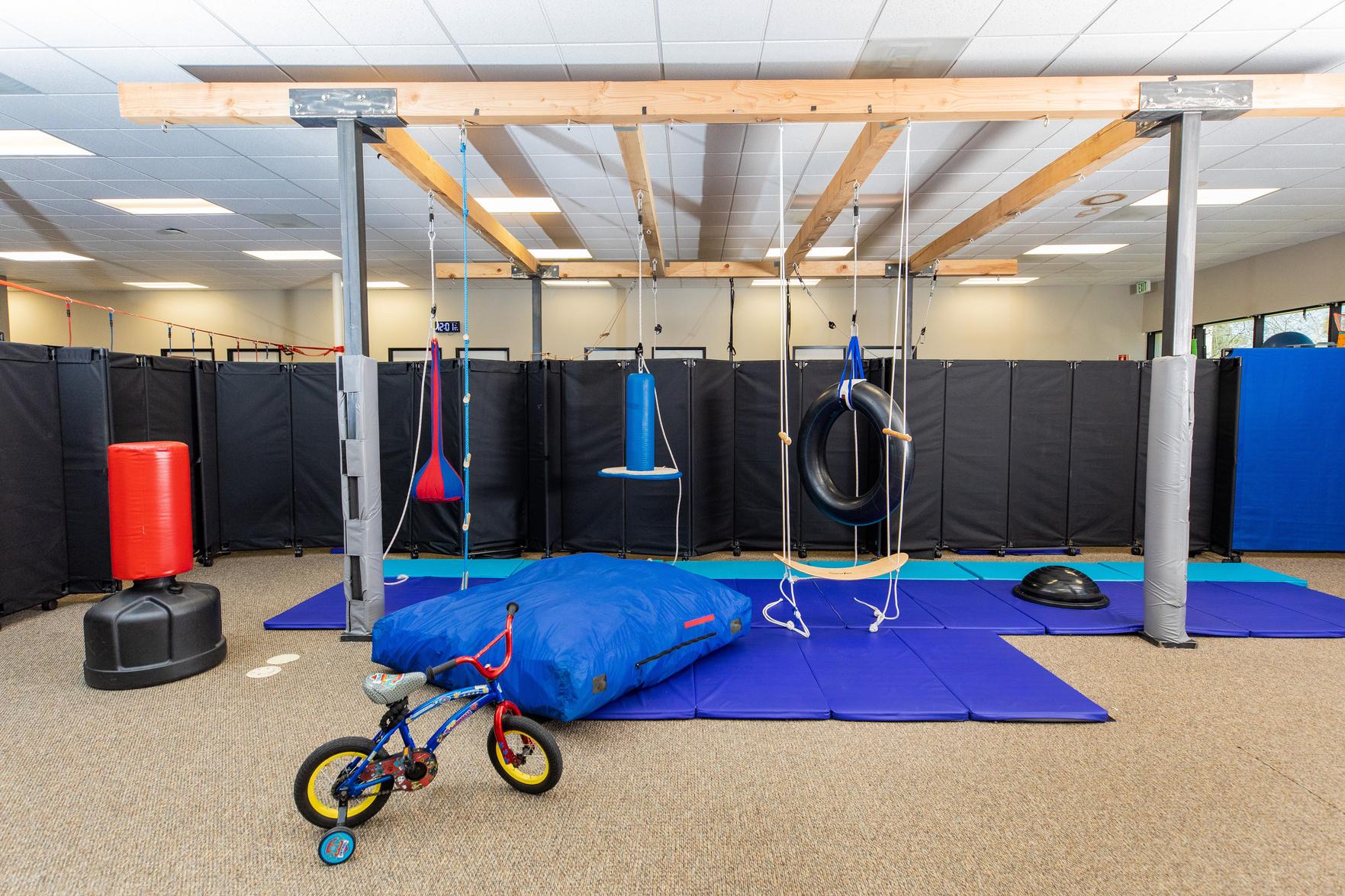
24 A Cortica lobby and waiting area
A large gym space for developmental therapies.
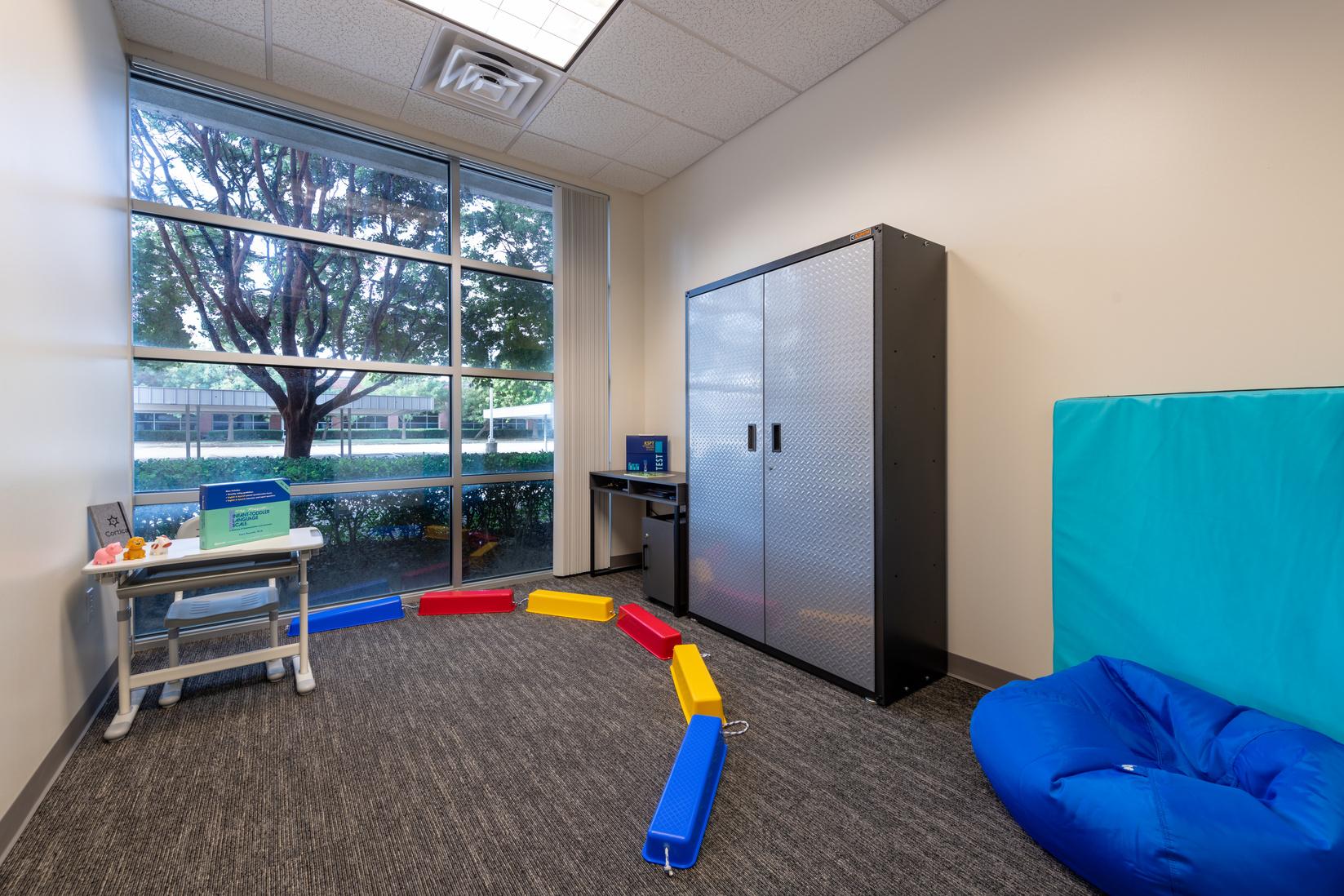
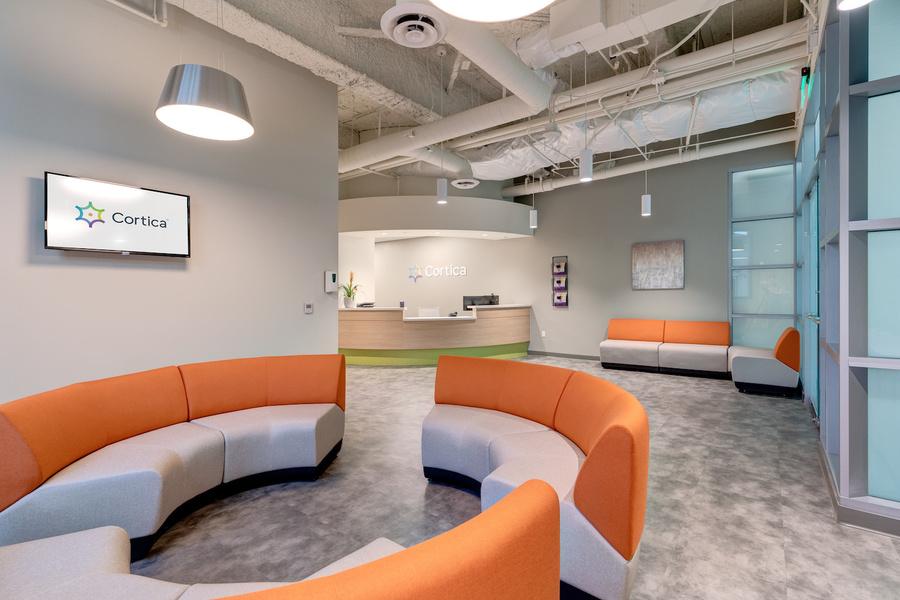
25 A developmental therapy room
A Cortica lobby and waiting area.
A large gym for developmental therapies.
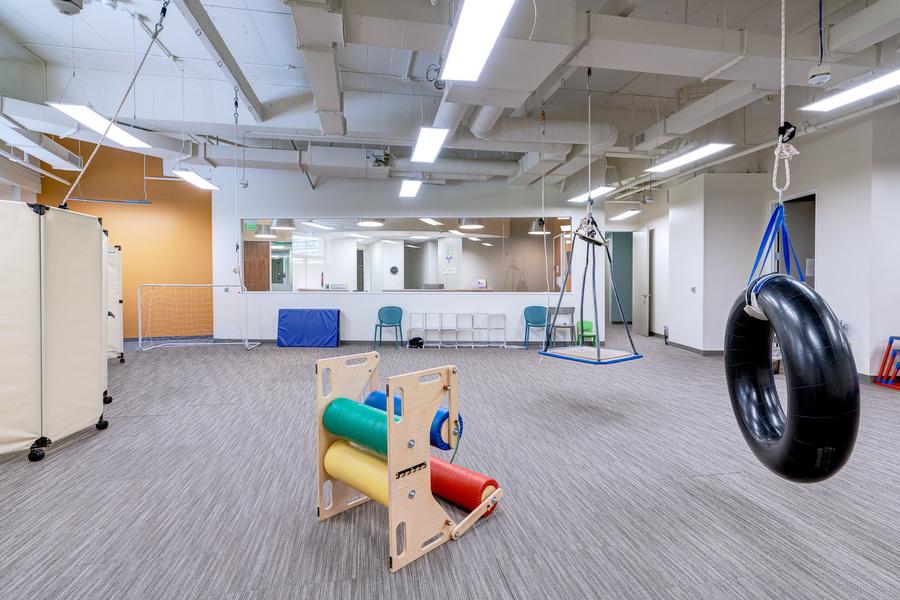
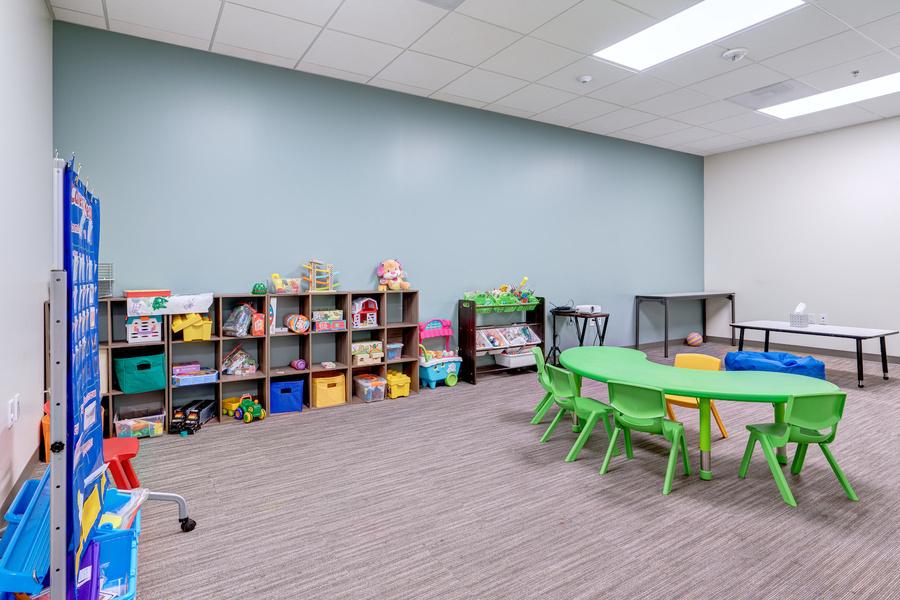
26 A PREP room
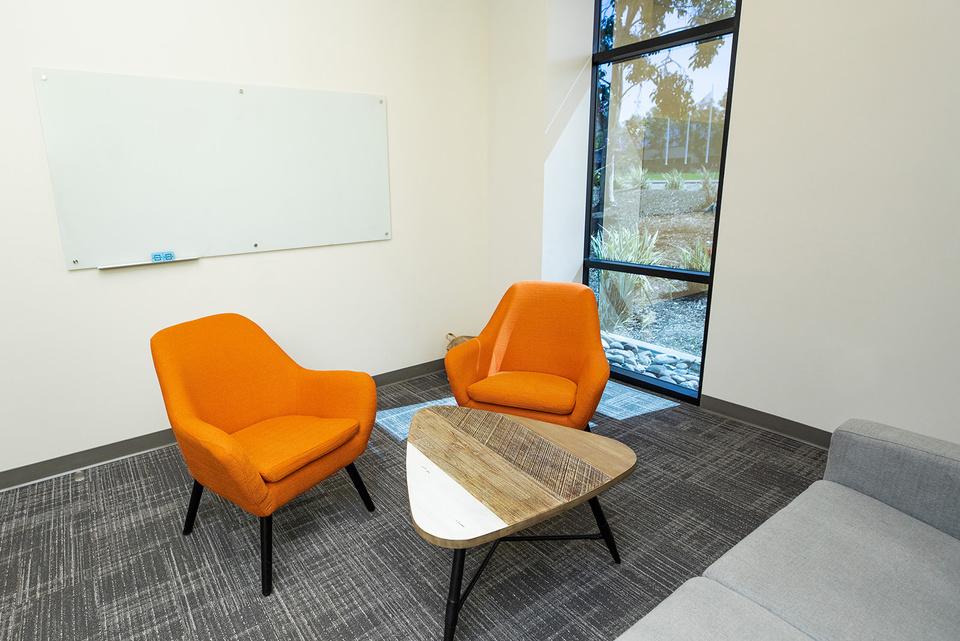
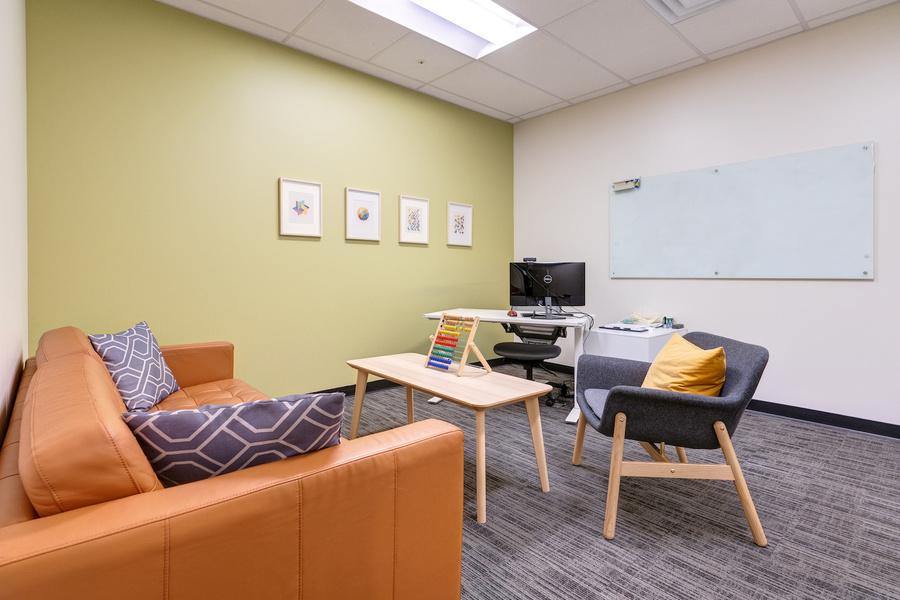
27 A
consultation room for meetings and evaluations
Another consultation room for meetings and evaluations.
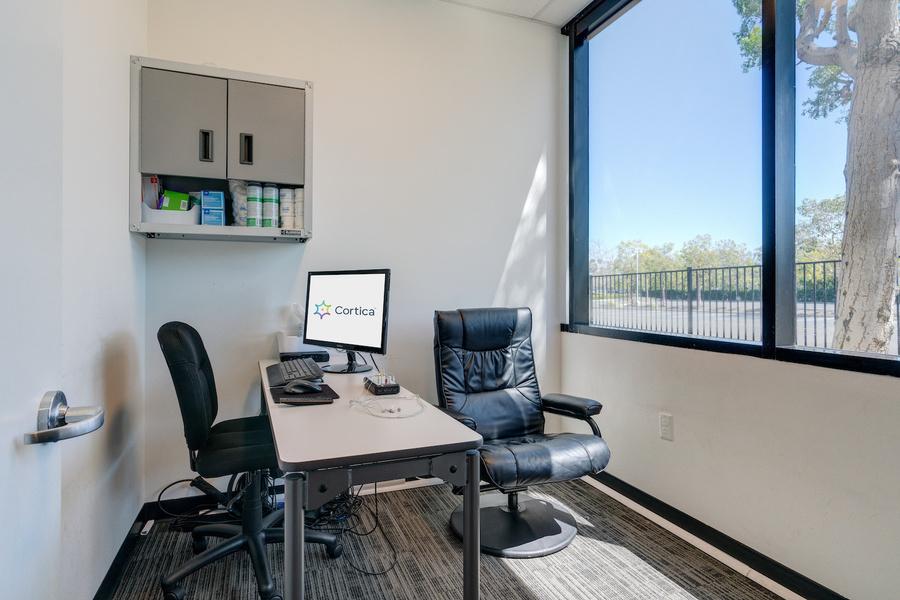
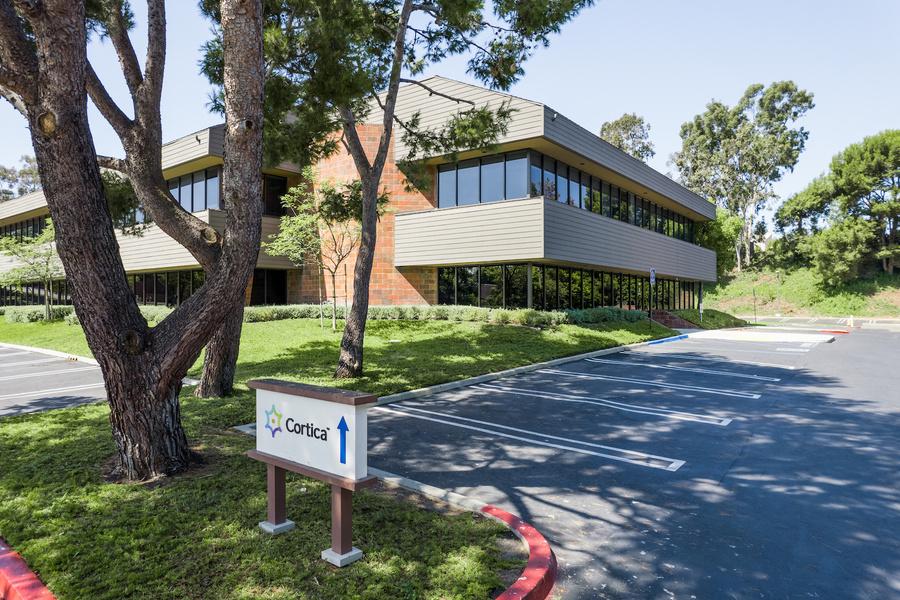
28 A medical room
The entrance to a Cortica center and parking lot.
A rock climbing wall in a gym

A gym for developmental therapies.
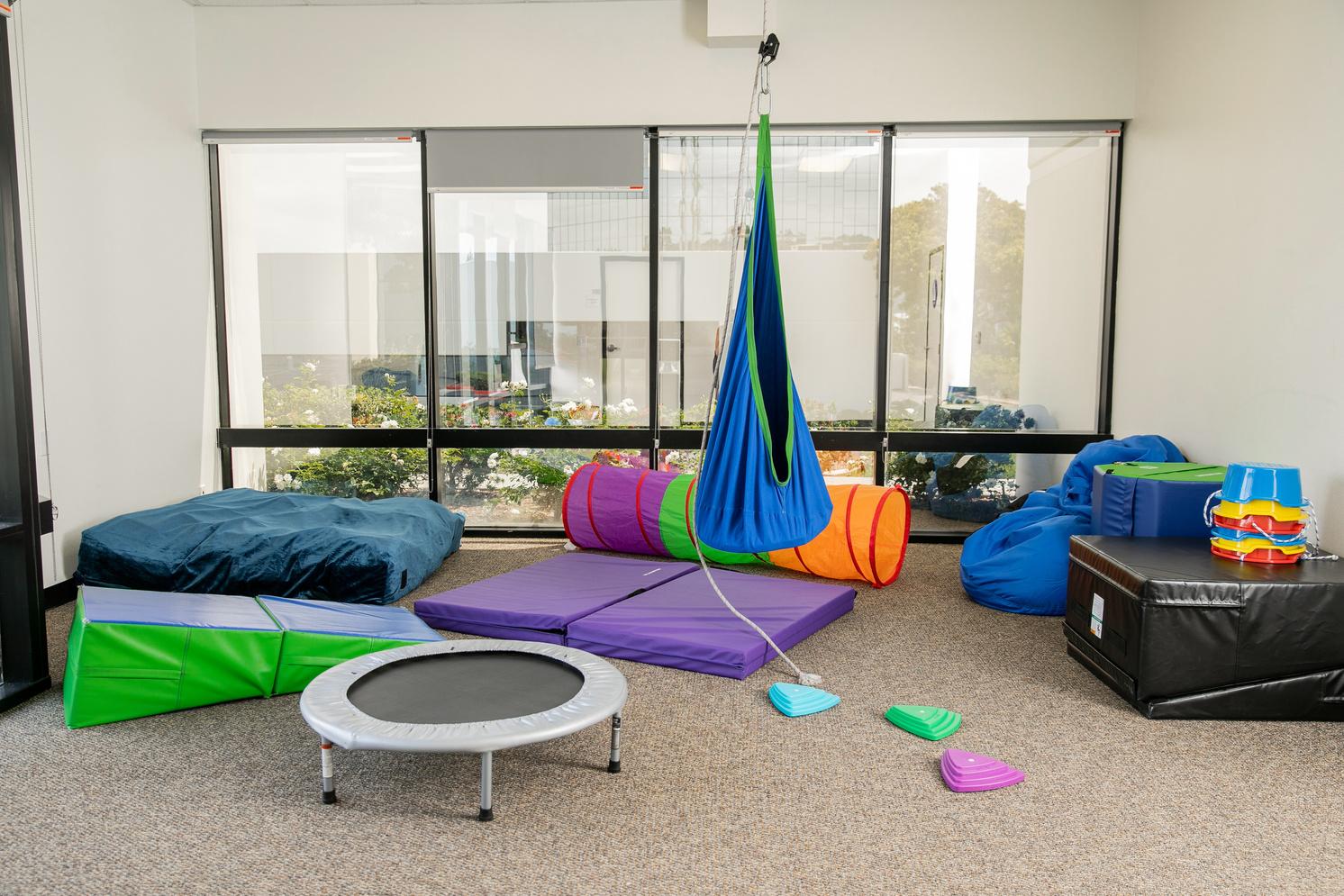
29
A gym and rock climbing wall
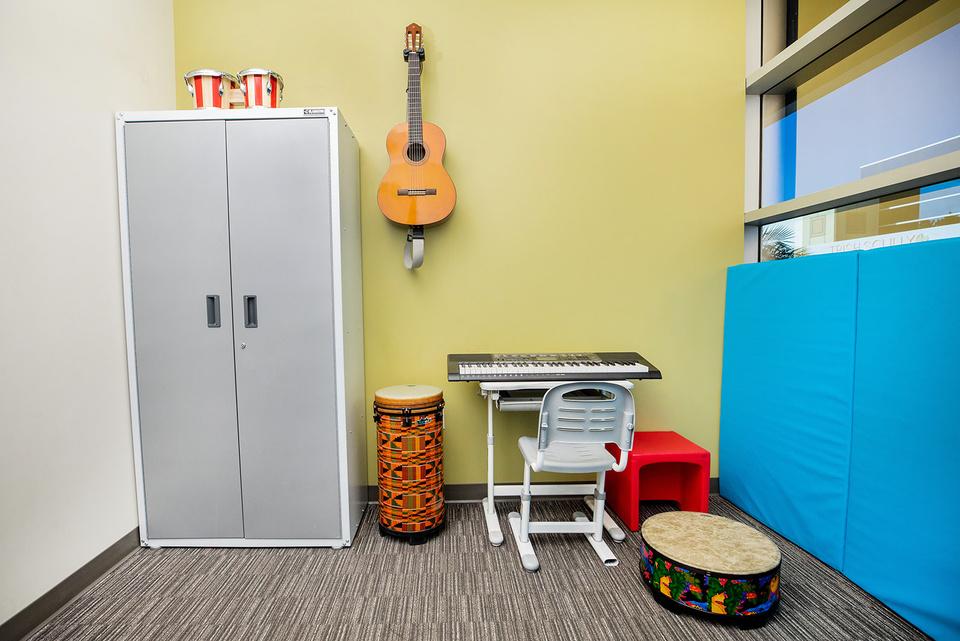
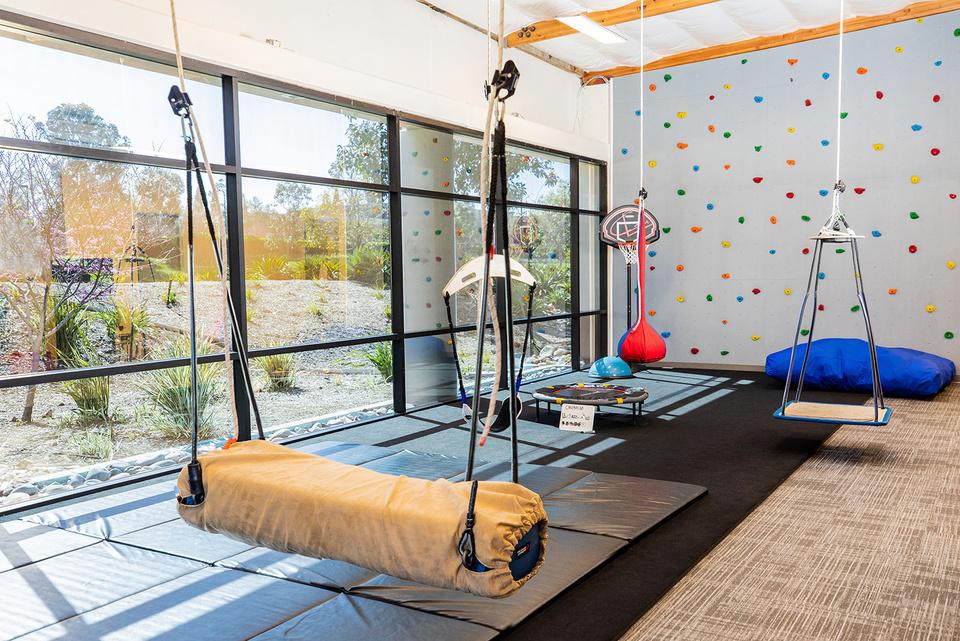
30
A music therapy room.
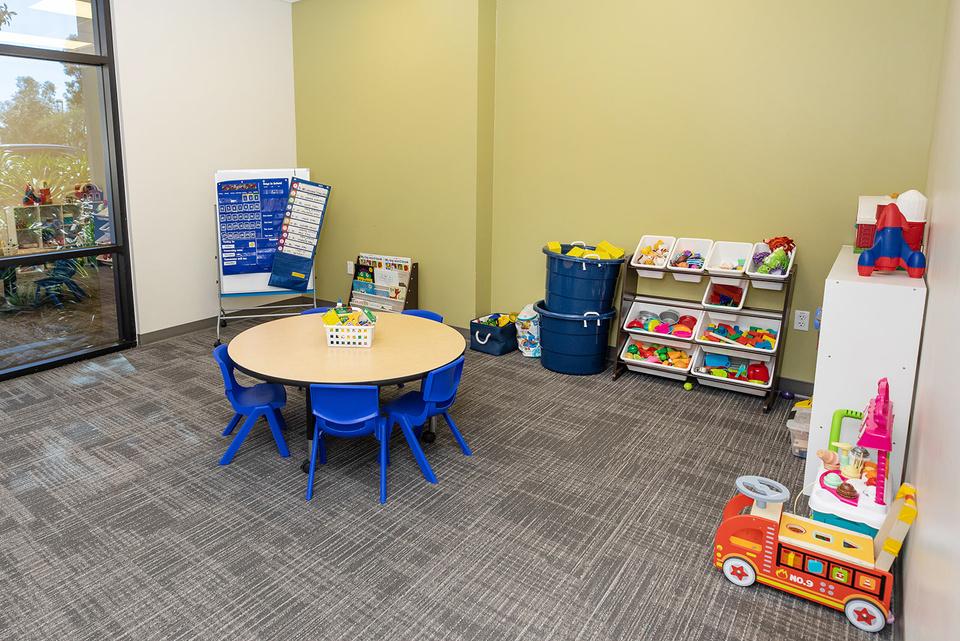
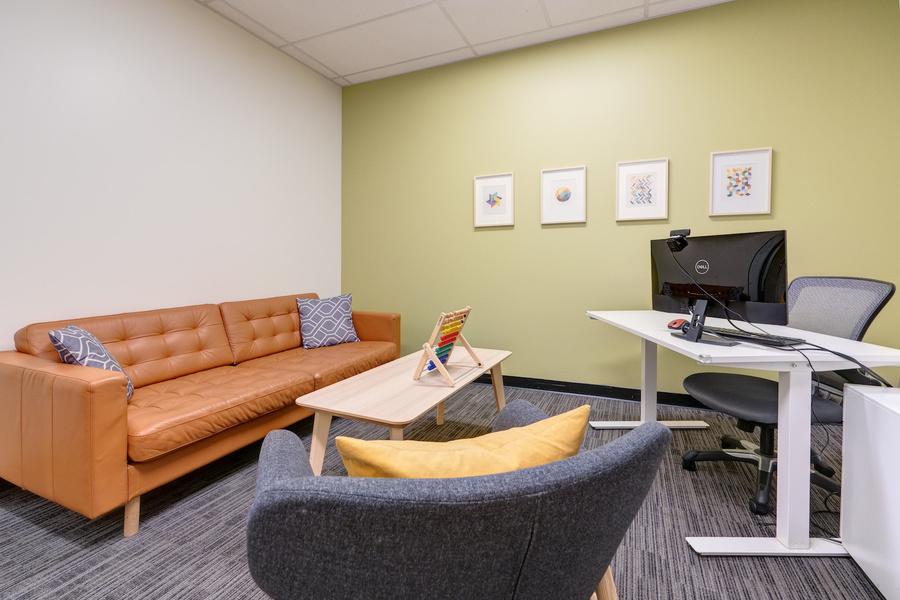
31 A PREP room
A room for evaluations and meetings.




 Dr.SuzanneGoh,MD,BCBA Chief Medical Officer and Co-Founder
Dr.SuzanneGoh,MD,BCBA Chief Medical Officer and Co-Founder































